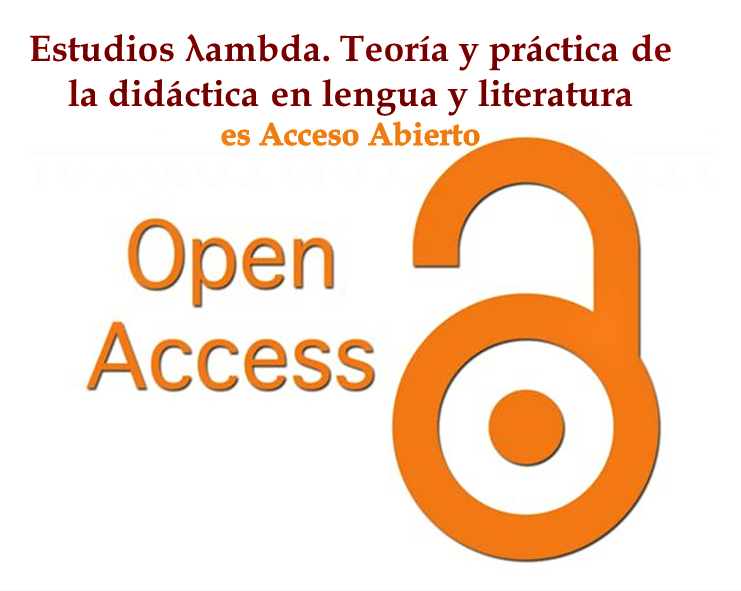La apropiación de las TIC en los estudiantes universitarios: Una aproximación desde sus habitus y representaciones sociales
The appropriation of ICT in college students: An approach from their habitus and social representations
DOI:
https://doi.org/10.36799/el.v1i1.32Palabras clave:
Apropiación tecnológica, habitus, representaciones socialesResumen
El uso y el aprovechamiento de las tecnologías de información y comunicación (TIC) ha sido irregular en todos los sectores sociales, de manera particular en el ámbito educativo, no sólo por las limitaciones en cuanto al acceso, que aunque han disminuido, aún persisten brechas, pero principalmente por la forma en que éstas son incorporadas a la vida académica de los individuos. La apropiación de la tecnología se hace realidad al aprehender prácticas que derivan en un uso culturalmente organizado de estas herramientas. El objetivo de este trabajo es mostrar un avance de un estudio de caso sobre los habitus y las representaciones sociales que tienen estudiantes de dos universidades públicas en Sonora, México, respecto al uso de las TIC, tanto en su vida cotidiana como académica. Se utilizó la encuesta y la entrevista semiestructurada como herramientas metodológicas para recabar la información, se aplicó un cuestionario a una muestra de 532 estudiantes y se entrevistó a 24 estudiantes de diferentes programas educativos en ambas universidades donde se encontró que las representaciones sociales son determinantes en el auge por el acceso a las TIC y los habitus originan prácticas que no resultan las más adecuadas para la formación académica de los futuros profesionistas.
Descargas
Citas
Betancourt, Valeria. El problema de la brecha digital: más allá de las fronteras de la conectividad. Pez de Plata: Bibliotecas Públicas a la Vanguardia, 1.3 (2004).
Bourdieu, Pierre. El sentido práctico. México: Siglo XXI, 2007
Bourdieu Pierre. “Los tres estados del capital cultural”. Sociológica, 5 (1979): 11-17, http://sociologiac.net/biblio/Bourdieu-LosTresEstadosdelCapitalCultural.pdf
Bourdieu Pierre y Passeron Jean-Claude. La reproducción. Elementos para una teoría del sistema de enseñanza. Distribuciones Fontamara. México, 1995
Bourdieu Pierre y Passeron Jean-Claude. Los herederos. Los estudiantes y la cultura. Editorial Siglo XXI, 2003
Canós Darós, Lourdes, Canós Darós, Maria José y Liern Carrión, Vicente. “El uso de las nuevas tecnologías aplicadas a la educación superior”. XVII Jornadas ASEPUMA – V Encuentro Internacional. Rect@ Vol Actas_17 Issue 1.612 (2009): 1-14, http://www.uv.es/asepuma/XVII/611.pdf
Castells, M. La era de la información. Economía, sociedad y cultura. 1. La Sociedad Red., Madrid: Alianza, 1997
Carr, Nicholas. Is Google making us stupid? En Mark Bauerlein (Comp.). The digital divide: arguments for and against Facebook, Google, texting, and the age of social networking, USA: Penguin Group, 2011
Gimenez, Gilberto. La sociología de Pierre Bourdieu. Instituto de Investigaciones Sociales de UNAM. México. 1997. http://www.paginasprodigy.com/peimber/BOURDIEU.pdf
Grenfell Michael y David James. Bourdieu and Education. Acts of Practical Theory. United Kingdom: Falmer Press, 1998
Jenkins Richard. Pierre Bourdieu. London: Routledge, 1992
Jones Christopher and Shao Binhui. The Net Generation and Digital Natives. United Kingdom: The Open University Walton Hall, 2011 https://www.heacademy.ac.uk/sites/default/files/next-generation-and-digital-natives.pdf (25 de octubre de 2015)
Musoboa Glenda y Benjamin Baez. “The Cultural Capital of Cultural and Social Capital: An Economy of Translations”. In John Smart (edit.), Higer Education: Handbook of Theory of Research. United States of America: Springer Science, 2009
OCDE. (2013). México. Panorama de la educación 2013. Organización para la Cooperación y el Desarrollo Económicos. 2013. http://www.oecd.org/edu/Mexico_EAG2013%20Country%20note%20(ESP).pdf (25 de octubre de 2015).
Piscitelli Alejandro. Nativos digitales. Dieta cognitiva, inteligencia colectiva y arquitecturas de la participación. Argentina: Editorial Santillana, 2008
Rushkoff, Douglas. The people’s net. En The digital divide: arguments for and against Facebook, Google, texting, and the age of social networking, compilado por Mark Bauerlein, 116-126. USA: Penguin Group, 2011
Descargas
Publicado
Cómo citar
Número
Sección
Licencia
El autor o autores conservan en todo momento sus derechos morales y patrimoniales sobre la obra; la obra no se puede alterar, transformar o ampliar; siempre debe reconocerse la autoría del documento referido. Ninguna de las modalidades de los documentos publicados en Estudios λambda. Teoría y práctica de la didáctica en lengua y literatura tienen fines comerciales de naturaleza alguna.





